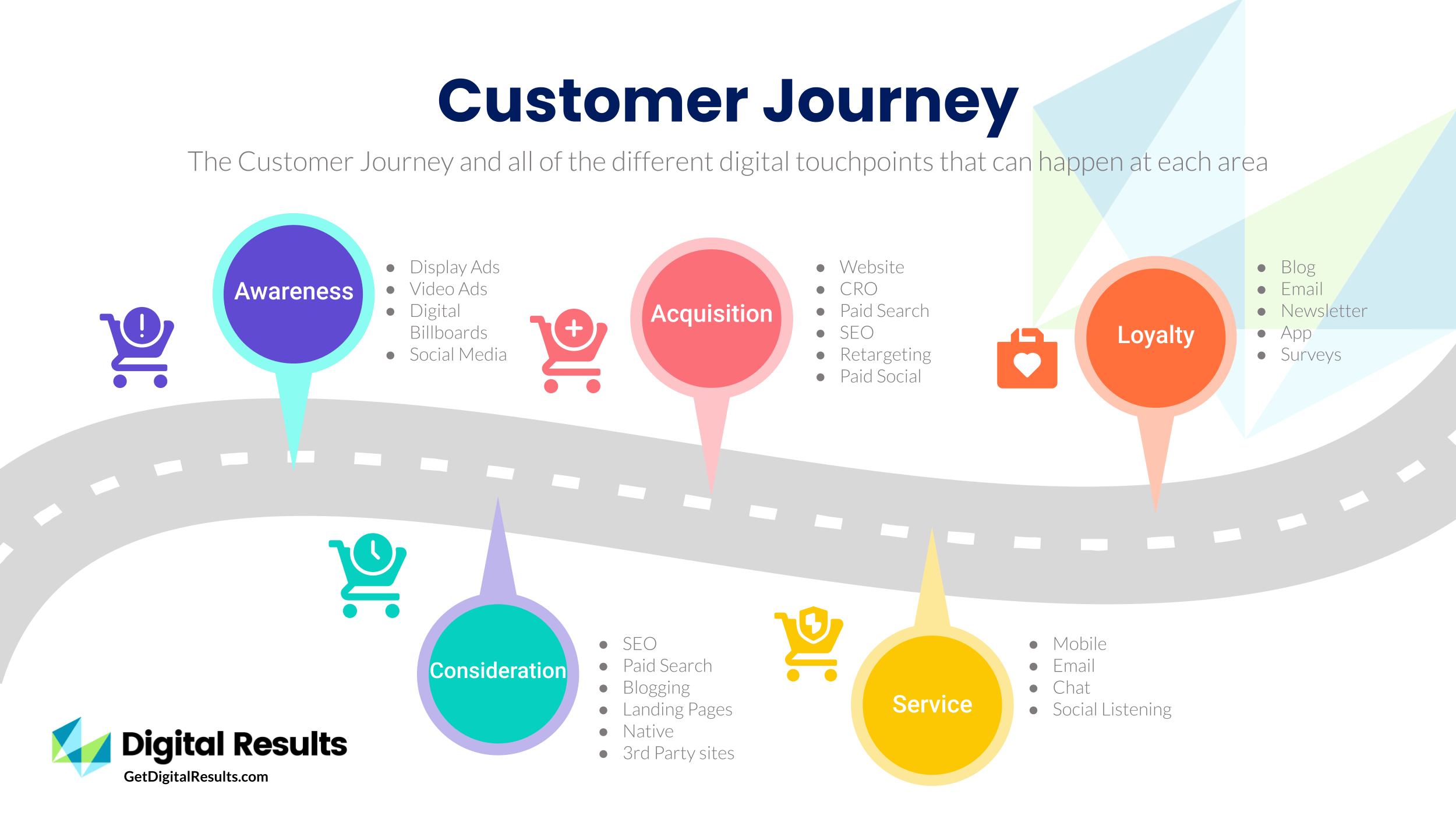Understanding the Basics of Digital Marketing
Digital Marketing, as a subject, has irrefutably taken the center stage in today’s world. This is a field that enables businesses to leverage the power of the internet to promote and sell products or services. It means accessing the massive internet audience, both globally and locally, and communicating your brand message effectively to them.
Components of Digital Marketing
Digital Marketing is a vast and diverse field. It is not just limited to one or two areas but is a compilation of several components. Some of the primary components of digital marketing include Search Engine Optimization (SEO), Social Media Marketing (SMM), Email Marketing, Content Marketing, and Pay per Click (PPC). Each of these components holds its significance and contributes to the overall success of a digital marketing strategy.
How Digital Marketing Works
The overall success of digital marketing strategy lies in the proper implementation of these components. SEO helps in improving the website’s visibility on search engines while SMM is about promoting the brand on social media platforms. On the other hand, Email marketing is used for sending personalized messages to the customers, Content marketing focuses on creating and distributing valuable content to attract the audience, and PPC is a method of driving traffic to your website by paying a publisher whenever your ad is clicked.
Benefits of Digital Marketing
With digital marketing, you can easily reach your target audience, measure the effectiveness of your campaigns, improve your customer service, increase your brand recognition, and many more. Moreover, it offers a high return on investment as compared to traditional marketing methods. It offers endless possibilities for brands including higher engagement rates, global reach, personalized marketing, and much more.
Setting Up Your Digital Marketing Goals
Setting up digital marketing goals is a focal point for any successful online business strategy. This is a process that requires careful planning and quantifiable objectives. By outlining your goals, you can track progress and determine whether your efforts are yielding results.
 Ultimate Guide: How to Earn Money as Amazon Affiliates Successfully
Ultimate Guide: How to Earn Money as Amazon Affiliates SuccessfullySteps To Set Your Goals
To start off, you must first define what you want to achieve with your digital marketing efforts. This could be increasing website traffic, improving brand awareness, or generating leads. It’s important to make your goals S.M.A.R.T (Specific, Measurable, Achievable, Relevant, and Time-bound) so you have a clear direction and can easily measure your success.
Focus On Your Audience
Understanding your target audience is key. Conducting audience research will enable you to create content that resonates with them and meets their needs. This not only helps to engage your audience but also aids in forming a more optimistic digital marketing strategy.
Monitor and Adjust Your Goals
Once you have set your digital marketing goals, it’s critical to watch and recalibrate them if necessary. Digital media is dynamic and as such, demands flexibility. Using analytics and metrics can provide valuable data to see where adjustments need to be made.
How to Choose the Right Digital Marketing Channels
Choosing the right digital marketing channels is a crucial decision that can significantly impact your brand’s online presence, consumer engagement, and overall business growth. Given the plethora of channels available today, it can sometimes become overwhelming to decide on the right one that aligns well with your business goals.
Understand Your Target Audience
Contemplate about your target audience is the primary step in selecting the right digital marketing channel. Essentially, your channel should be one where your audience is both present actively and receptive to your messages. If your target audience is teenagers, you may want to focus on mediums like Snapchat or Instagram. On the other hand, LinkedIn and Twitter are better for reaching business professionals and corporations.
 Ultimate Guide: How to Earn Money as Amazon Affiliates Successfully
Ultimate Guide: How to Earn Money as Amazon Affiliates Successfully Ultimate Guide on How to Make Money with a Website: Proven Strategies and Tips
Ultimate Guide on How to Make Money with a Website: Proven Strategies and TipsFocus on Your Business Goals
Each digital marketing channel is uniquely designed to serve distinct purposes. For instance, if you’re aiming for brand awareness, you might want to use Facebook ads and Instagram influencers. However, if you’re focusing on customer retention, then email marketing could be your best bet. Therefore, it’s essential to align your business goals with the digital channel.
Measure the ROI
The effectiveness of a digital marketing channel is also determined by the return on investment (ROI). Leverage data analytics to measure the ROI of different channels. Check metrics like cost per lead, conversion rates, and customer acquisition cost. A thorough analysis will assist your decision-making process in channel selection, making it less of a shot in the dark and more of a calculated strategy.
Creating a Successful Digital Marketing Strategy
Digital marketing is a dynamic and complex world, but with a well-designed and executed strategy, it’s possible to greatly increase your online presence and success. Digital marketing strategies require thoughtful planning, ongoing refinement, and a grasp of the latest trends and technologies in order to deliver significant results.
One essential element of a successful digital marketing strategy is Search Engine Optimization (SEO). This technique aims to increase a website’s visibility in search engine results pages. By optimizing content with relevant keywords, your online platforms can reach more potential customers. Good SEO practices not only attract more traffic but also improve the user experience and usability of a website.
Social Media Marketing
Another important aspect is social media marketing. With billions of users worldwide, social media platforms provide an invaluable opportunity to connect with potential customers. A solid social media strategy can increase brand awareness, enhance your company’s reputation, and foster customer engagement.
 Ultimate Guide: How to Earn Money as Amazon Affiliates Successfully
Ultimate Guide: How to Earn Money as Amazon Affiliates Successfully Ultimate Guide on How to Make Money with a Website: Proven Strategies and Tips
Ultimate Guide on How to Make Money with a Website: Proven Strategies and Tips Mastering Digital Marketing on a Budget: How to Do it Without Money
Mastering Digital Marketing on a Budget: How to Do it Without MoneyContent Marketing
Lastly, content marketing is a non-negotiable part of a successful digital marketing strategy. It’s all about creating and sharing high-quality, relevant, and valuable content to attract and engage viewers. Consistently producing informative and engaging content helps establish your brand as an authority in your field, which builds consumer trust and loyalty. Moreover, content marketing supports SEO practices and provides shareable material for your social media campaigns.
Measuring Success in Your Digital Marketing Efforts
Understanding the intrinsic value of your digital marketing strategies can be made feasible by assessing their success. Measuring success in your digital marketing efforts guarantees that your strategies align with strategic business initiatives and goals. Thus, the ability to quantify results in dynamic online landscapes is essential.
In-depth analysis of engagement metrics stands as the foremost indicator of how well your strategies are performing. Web traffic, consumer interaction, conversion rates, and social shares critically affect the overall performance of your digital marketing campaigns. Still, merely understanding these metrics is not sufficient. The true utility of these measurements can only be realized when they are used to tailoring strategies to enhance future campaigns.
Key Metrics for Measuring Success
Every digital marketing effort has specific key metrics that help gauge its success. These include:
 Ultimate Guide: How to Earn Money as Amazon Affiliates Successfully
Ultimate Guide: How to Earn Money as Amazon Affiliates Successfully Ultimate Guide on How to Make Money with a Website: Proven Strategies and Tips
Ultimate Guide on How to Make Money with a Website: Proven Strategies and Tips Mastering Digital Marketing on a Budget: How to Do it Without Money
Mastering Digital Marketing on a Budget: How to Do it Without Money Understanding the Basics: What is Digital Marketing?
Understanding the Basics: What is Digital Marketing?- Bounce Rate: This represents the percentage of visitors who navigate away from the site quickly after only viewing one page. A high bounce rate could indicate a need for content or website improvement.
- Conversion Rate: This is the percentage of visitors who take the designated action, be it filling a form, signing up for a newsletter, or making a purchase.
- Return on Investment (ROI): This assesses the efficiency of an investment or compares the efficiency of different investments. The goal of digital marketing strategies is to increase ROI.
By narrowing down the focus on key metrics, you can accurately measure the success of your digital marketing efforts and effectively iterate your strategies to maximize your results.
